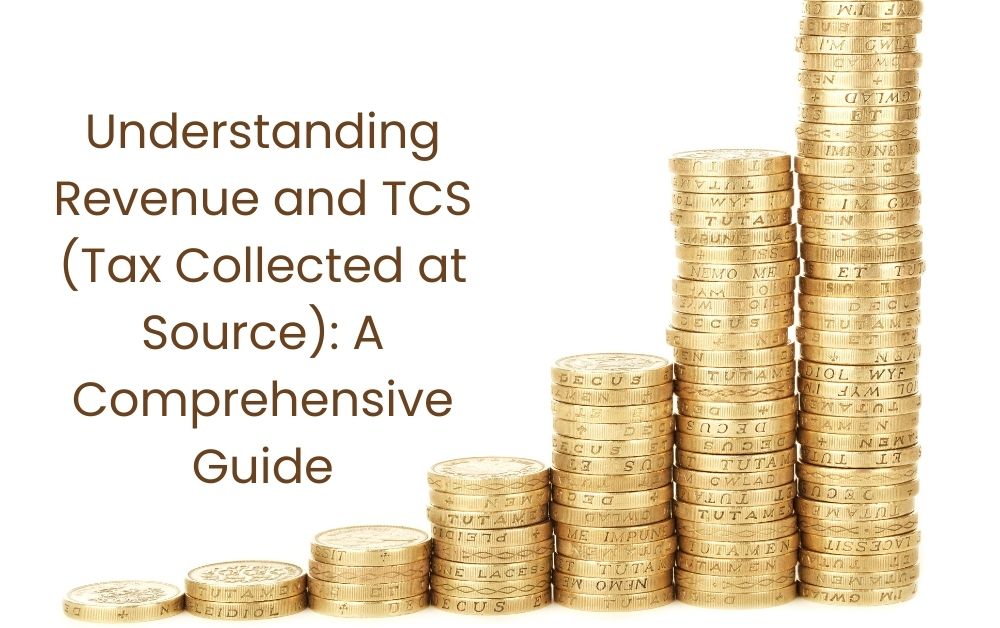Understanding Revenue and TCS (Tax Collected at Source): A Comprehensive Guide

Revenue is the lifeblood of any business or government entity, and understanding how it is generated, collected, and managed is essential for financial stability and growth. One crucial aspect of revenue management is Tax Collected at Source (TCS), a mechanism used by governments to collect taxes at the source of income. In this blog post, we will delve into the concepts of revenue and TCS, exploring their significance, implications, and how they impact businesses and individuals.
What is Revenue?
Revenue is the total income generated by a business or organization from its primary operations, such as selling goods, providing services, or other activities. It represents the money earned before any deductions, expenses, or taxes are subtracted. Revenue is a key indicator of a company’s financial health and is used to calculate profitability ratios and assess business performance.
Types of Revenue:
- Operating Revenue: Income generated from core business activities, such as sales of products or services.
- Non-Operating Revenue: Income derived from sources outside the primary operations, such as investments, interest, or rent.
- Gross Revenue: Total income before any deductions.
- Net Revenue: Income after deducting returns, allowances, and discounts.
What is Tax Collected at Source (TCS)?
Tax Collected at Source (TCS) is a tax levied by governments to collect revenue at the source of income generation. It is a mechanism used to track and ensure tax compliance, particularly for transactions involving goods or services. TCS requires the person or entity receiving the payment to collect a specified percentage of the transaction amount as tax and remit it to the government. The entity collecting TCS is responsible for depositing the collected tax with the tax authorities.
Common Types of TCS:
- Goods and Services Tax (GST) TCS: In some countries like India, TCS is collected under the GST regime on certain transactions, including the sale of goods and services.
- Income Tax TCS: TCS may also be applicable to specific income types, such as rental income, interest income, or sale of immovable property.
- E-commerce TCS: E-commerce platforms often collect TCS on behalf of sellers for goods sold on their platforms.
Significance of Revenue and TCS:
- Government Revenue: Revenue collected through taxes, including TCS, is essential for funding government activities, public services, and infrastructure development.
- Tax Compliance: TCS ensures that tax is collected at the source, reducing the chances of tax evasion and improving tax compliance.
- Business Operations: For businesses, understanding and managing revenue is critical for financial planning, investment decisions, and meeting tax obligations.
- Customer and Vendor Relations: Implementing TCS may impact relationships with customers and vendors, as they may have to comply with TCS requirements.
Implications for Businesses and Individuals:
- Businesses must adhere to TCS regulations and collect taxes as required by law. Failure to comply can result in penalties and legal consequences.
- Individuals who are subject to TCS may see a portion of their payments withheld as tax. They should be aware of TCS rates and exemptions applicable to their income sources.
Conclusion: The Interplay of Revenue and TCS
Revenue generation and tax collection are intricately linked, impacting governments, businesses, and individuals. Revenue is the lifeblood of organizations, enabling them to operate, grow, and thrive. TCS, on the other hand, is a mechanism governments use to collect taxes efficiently and ensure compliance. Understanding the dynamics of revenue and TCS is crucial for maintaining financial health, complying with tax laws, and contributing to the broader economy’s well-being.







